A Narrative Approach. Life After Encephalitis by Dr Ava Easton
Life After Encephalitis provides a unique insight into the experiences of those affected by encephalitis, sharing the rich, perceptive, and often powerful, narratives of survivors and family members.
It shows how listening to patient and family narratives can help us to understand how they make sense of what has happened to them, and also help professionals better understand and engage with them in practice. The book will also be useful for considering narratives associated with brain injuries from other causes, for example traumatic brain injury.
Life After Encephalitis will appeal to a wide range of people: professionals working in neurology and rehabilitation, and also to and survivors of encephalitis, their families, and carers.
“Dr Ava Easton has done something remarkable with this book: she has given life and support to patients and families living through this silent disease. From the first-person cases to the in-depth research and passionate dedication to her work as the head of the Encephalitis Society, Ava Easton has given us a gift with this tremendously important book”. – Susannah Cahalan, author of Brain On Fire: My Month of Madness
“This book is equally relevant to survivors, family members, carers, neurologists, psychiatrists, nurses, relatives and even disinterested readers. Ava Easton has brought the same demotic wisdom to this book that she exercises as the inspirational CEO of Encephalitis International. Over the years she has taken what was a deadly but obscure illness out to the world, and explained it simply and cogently to people who had no reason to have thought about it before, and to experts who had almost certainly never thought about it in those terms before.” – Simon Hattenstone, The Guardian
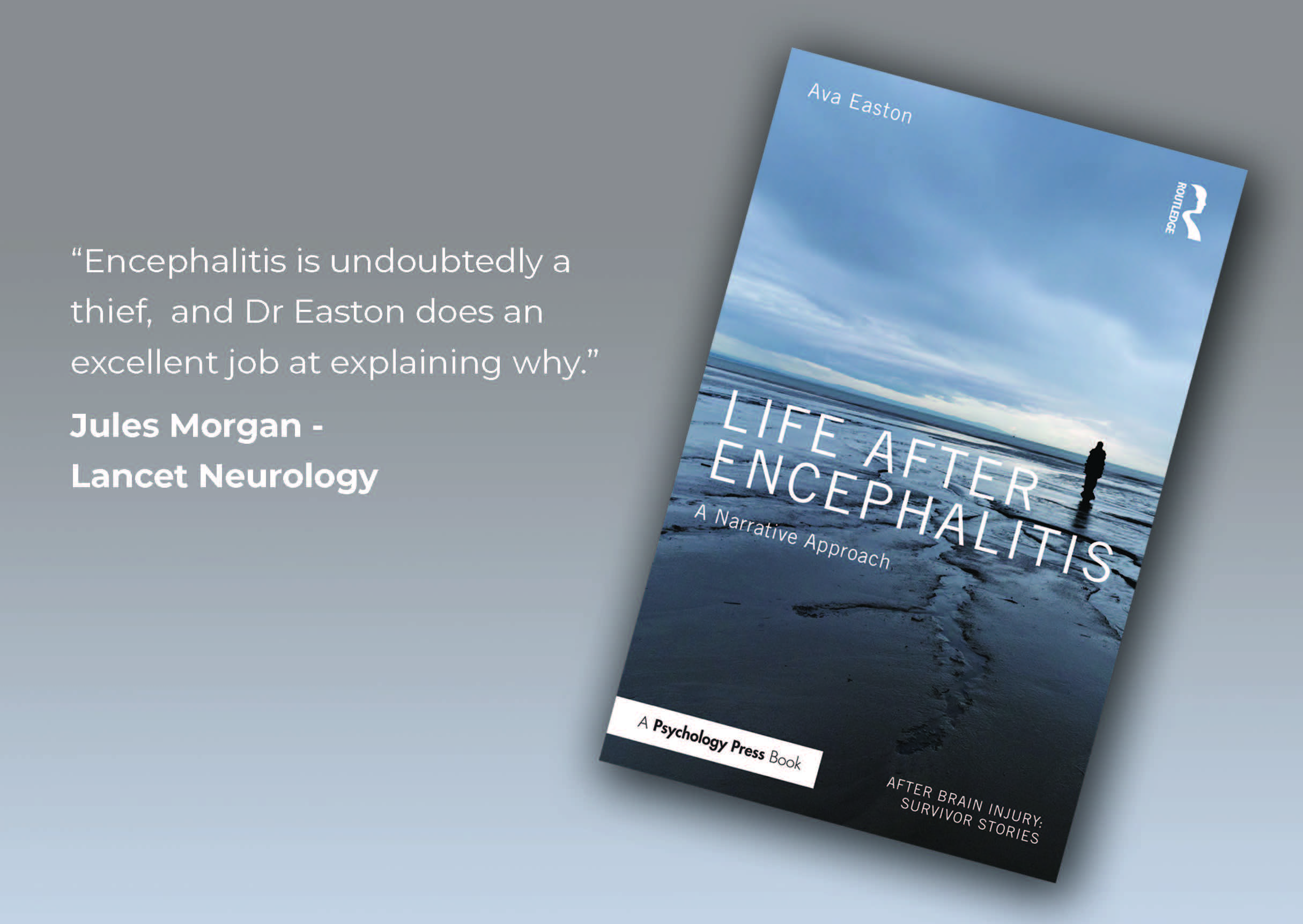
Brain on Fire by Susannah Cahalan
This is a remarkable book about a type of encephalitis called anti-NMDA-receptor encephalitis. Susannah survives not only this devastating condition but also not uncommon mid-diagnoses, and their potential for admission to psychiatric institutions.
Susannah Cahalan was a happy, clever, healthy twenty-four-year old. Then one day she woke up in hospital, with no memory of what had happened or how she had got there. Within weeks, she would be transformed into someone unrecognisable, descending into a state of acute psychosis, undergoing rages and convulsions, hallucinating that her father had murdered his wife; that she could control time with her mind. Everything she had taken for granted about her life and who she was, was wiped out.
This is Susannah’s story of her terrifying descent into madness and the desperate hunt for a diagnosis, as, after dozens of tests and scans, baffled doctors concluded she should be confined in a psychiatric ward.
A gripping medical mystery with a unique personal voice, Brain on Fire is also the story of how one brilliant man, Syria-born Dr Najar, finally proved – using a simple pen and paper – that Susannah’s psychotic behaviour was caused by a rare autoimmune disease attacking her brain. His diagnosis of this little-known condition, anti-NMDA-receptor autoimmune encephalitis, saved her life and possibly the lives of many others.
Susannah Cahalan is a reporter on the New York Post and the recipient of the 2010 Silurian Award of Excellence in Journalism for Feature Writing. Brain on Fire is a searingly personal yet universal book, which asks what happens when your identity is suddenly destroyed, and how you get it back.

Pulling through by Catherine Jessop
“And at that exact moment, the earth tipped, and we all slid into a parallel universe…”
On Christmas Day 2016, the Jessops were just an ordinary family, but on Boxing Day, one near-death experience swept them all into the bewildering world of hospitals and serious illness, and their lives changed forever.
Pulling Through is a handbook of everything Catherine has learned on their journey. It covers many practicalities, such as explaining hospital tests and scans, jargon-busting medical terms, finance, rehabilitation and more. But it also illuminates the emotional aspect of illness and how massively it affects family and friends. There are chapters on the power of nature, music, counselling, optimism and humour, and how to look after the mental health of both patient and carer.
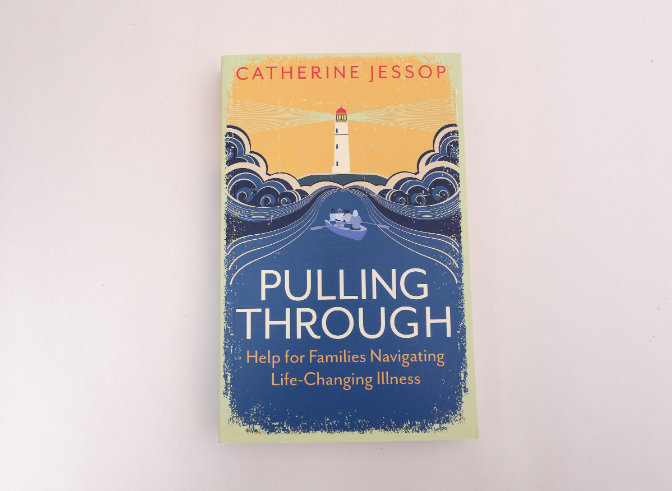
Our Time of Day, My Life with Corin Redgrave by Kika Markham
Our Time of Day provides a better understanding of the impact of brain injury more broadly. The book appeals to patients and families alike as well as those professionals supporting them.
Corin Redgrave and Kika Markham shared a happy marriage, a love of acting and like many of the Redgrave acting dynasty, a passion for left-wing politics and activism. Much of this came to an abrupt halt when Corin sustained a serious heart attack in 2005 resulting in an anoxic brain injury. This event had a devastating impact on their lives and this book details their experience from Kika’s perspective.
This book is passionately written and at times brutally honest. It contains Kika’s personal narrative and reflections of her marriage to Corin, the politics and passions they shared all beautifully interwoven with the playwright and thespian worlds in which both the Markham and Redgrave families inhabited. Diary entries from both Kika and Corin’s journals along with anecdotes and reflections by family members, close friends and colleagues, all serve to create a temporal and rich tapestry in which the author’s own narrative exists.
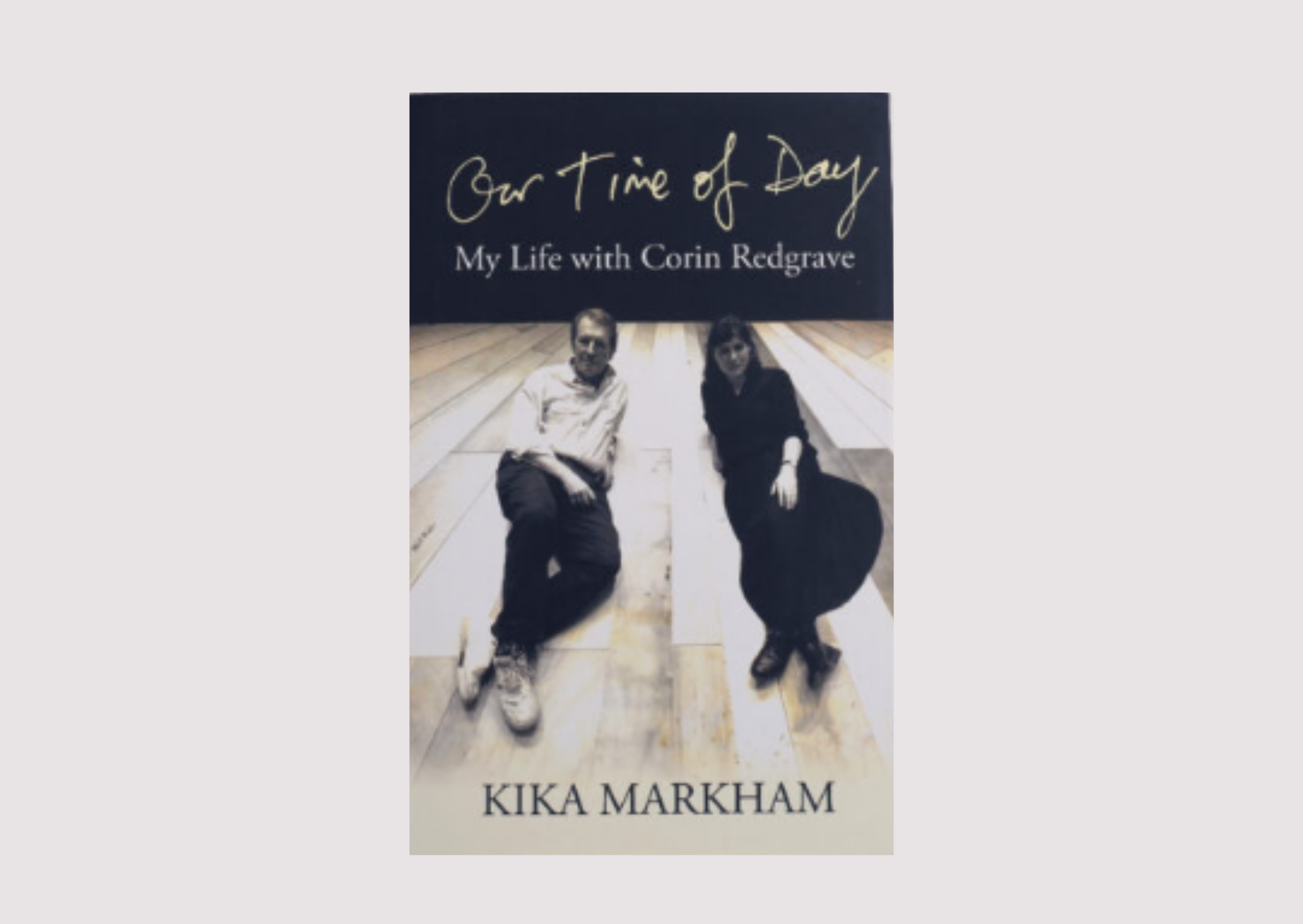
Unwillable by Jackie Stebbins
When Jackie M. Stebbins had reached the pinnacle of success as a young trial lawyer, she desperately tried to hide her anxiety and depression.
But her shaking hands, endless insomnia, and white noise in her ears told her it was true: she had burned herself out. After she pleaded to be committed to a psychiatric ward, her world went black.
She awoke a month later to learn that she had a rare and debilitating brain illness that stole her career and nearly ended her life.
The twists and turns of her journey to a diagnosis, recovery, and new life takes readers on an emotional and psychedelic rollercoaster ride.
You will feel her terror and devastation and be moved by her will and hope. Unwillable makes you laugh, cry, and cheer for Jackie in this fast-paced story of a woman whose persistence burdened her, but also equipped her to survive.
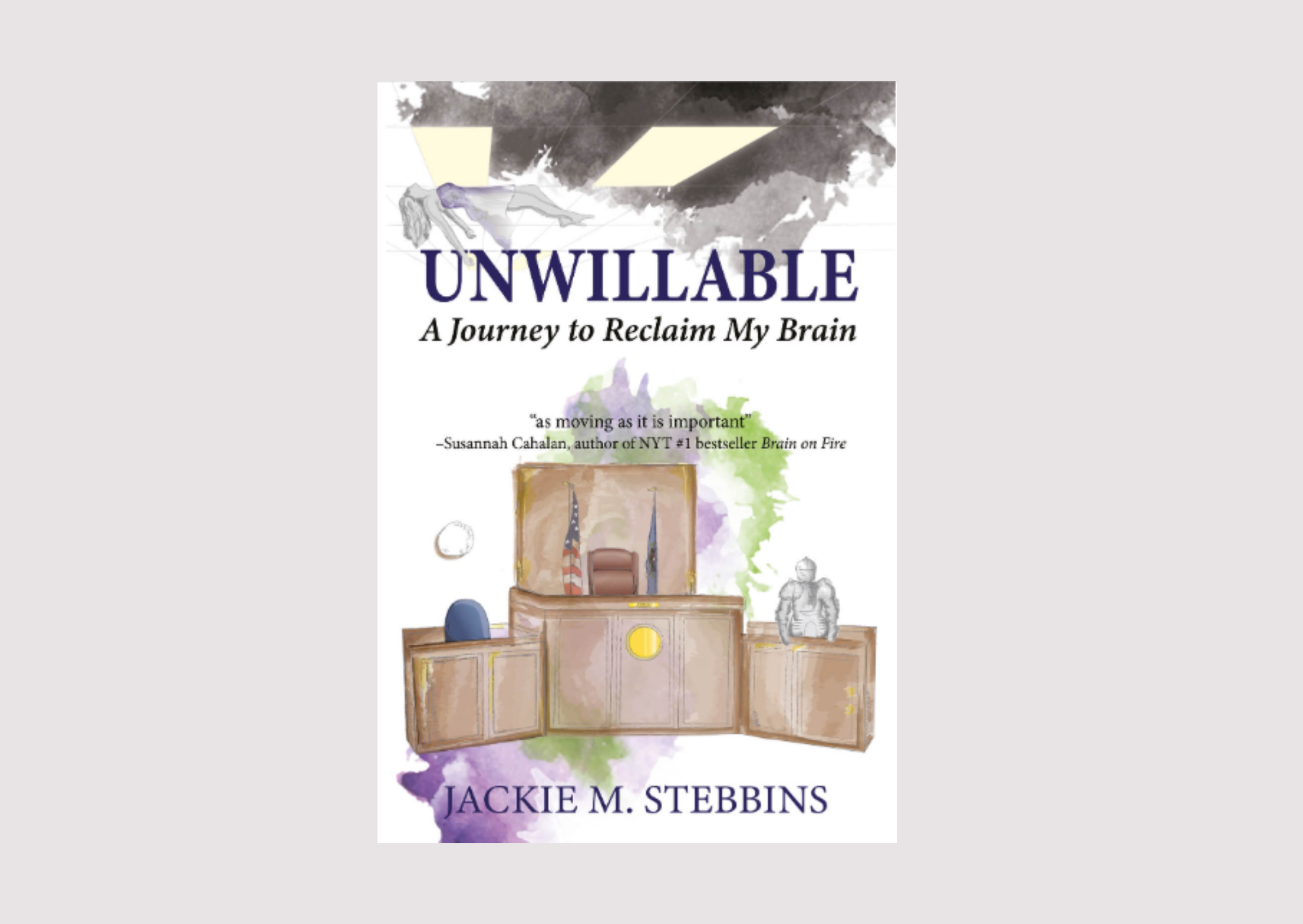
Bed 12 by Alison Murdoch
Bed 12 is a survival guide to the world of acute medicine, and a poignant and darkly comic account of what it’s like to fight for someone’s life
What do you do when the most important person in your life is about to die?
Who can help you?
How do you keep going?
When Alison Murdoch’s husband catches viral encephalitis and falls into a life-threatening coma, everything changes. Bed 12 is a survival guide to the world of acute medicine, and a poignant and darkly comic account of what it’s like to fight for someone’s life. Over the course of a summer, machines beep and clatter, medical staff come and go, and family and friends of varying beliefs offer well-intentioned advice. For someone unfamiliar with hospitals, death and dying, the insights of Buddhism assume a greater relevance than ever before. This book is an astute, profound and uplifting insight into how to cope with despair, heartache and the unknown.
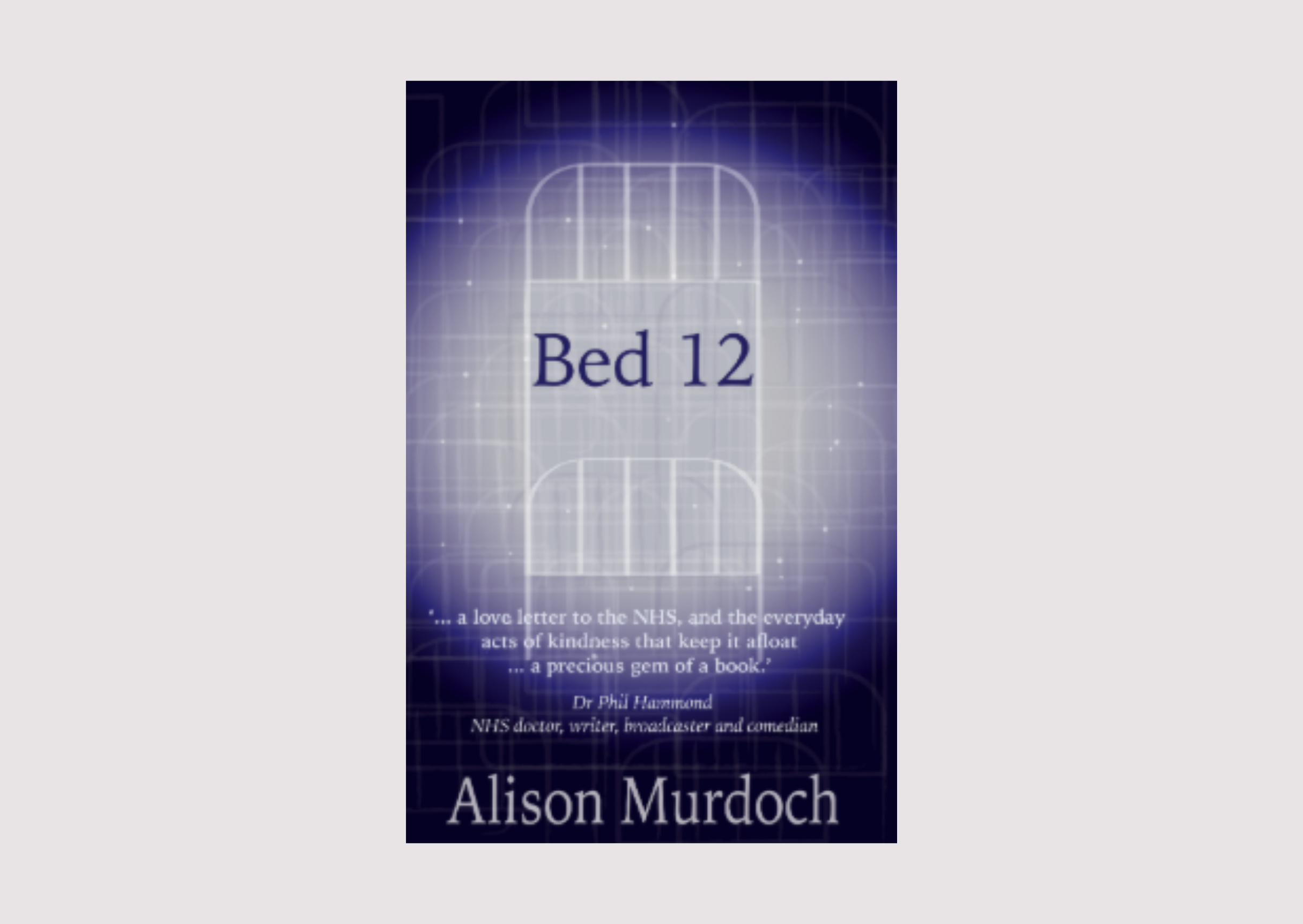
Other helpful books
I AM I AM I AM is Maggie O'Farrell's electric and shocking memoir of the near-death experiences that have punctured her life. The childhood illness she was not expected to survive. A teenage yearning to escape that nearly ended in disaster. A terrifying encounter on a remote path. A mismanaged labour in an understaffed hospital.
Identity Unknown gives an exceptional, poignant and in-depth understanding of what it is like to live with the severe after-effects of brain damage caused by a viral infection of the brain. It tells the story of Claire, a nurse, wife, and mother of four, who having survived encephalitis, was left with an inability to recognise faces – a condition also known as prosopagnosia together with a loss of knowledge of people and more general loss of semantic memory
Part One describes our current knowledge of encephalitis, of perception and memory, and the theoretical aspects of prosopagnosia and semantic memory. Part Two, told in Claire’s own words, is an account of her life before her illness, her memories of the early days in hospital, an account of the treatment she received at the Oliver Zangwill Centre, and her description of the long-term consequences of encephalitis. Claire’s profound insights, clear writing style, and powerful portrayal of her feelings provide us with a moving insider’s view of her condition. These chapters also contain additional commentary from Barbara Wilson, providing further detail about the condition, treatment possibilities, potential outcomes, and follow-up options.
Identity Unknown provides a unique personal insight into a condition which many of us have, for too long, known too little about. It will be of great interest to a broad audience including professionals working in rehabilitation settings, and all those who have sustained a brain injury, their families and carers.
The book is available from Routledge
The Thief in The Night is an honest and candid account of the author's outcomes following encephalitis and the impact it has had both upon her and her family.
"Catherine's story is important. It is her narrative, and important for that alone, however it is important for a number of other reasons. It is an honest and candid account of her outcomes following encephalitis and the impact it has had both upon her and her family. It will help others to feel better understood and less alone. It also demonstrates that the outcomes of encephalitis, in those likely to be considered mildly or moderately affected in a clinical sense, can in fact find life on a day to day basis extremely difficult and at times hopeless. The labels we rely upon, and to some extent impose upon survivors of this devastating condition can, at times, serve only to confuse and perhaps dismiss their experiences.
We have called encephalitis 'A Thief' for many years at Encephalitis International. It robs people of abilities we take for granted every day: thinking, memory, concentration, inhibitions. For some families it robs them of their loved one and even in those families where the person affected survives, it can rob them of the person they once knew.
It is my pleasure to know Catherine both as a member of our Society and as one of our dedicated and highly valued regional volunteers. The ability to write is a gift and this book is a gift to the many survivors (and their family members and friends) who will read it and will feel someone does understand, and they are not so alone." Dr. Ava Easton, CEO of Encephalitis International
These poems were written after the author's husband started to recover from VGKC antibody encephalitis.
"In November 2013 my husband, John Coates, fell ill with a mysterious disease. Its symptoms included sudden loss of memory, seizures, hallucinations and delusions. After four months this was diagnosed as a rare form of auto-immune encephalitis (VGKC) and after medication started he began to improve. Luckily, it is possible to recover completely from this particular encephalitis and this has happened. John is well again. These poems and nine others were written after he started to respond to the medication. They were published as a pamphlet Crazy Days by Wayleave Press". Carol Coates
Carol Ann Duffy, the Poet Laureate, who has known John for many years, said of the pamphlet “It’s one of the best things I’ve read all year”.
Crazy Days 7
"What can I do with a man whose half-hour memory
bewilders us both? I’ve stopped saying
do you remember, because the rind of sadness
forming round you thickens every time you say no
and I can’t imagine what it’s like to be you
stalled in a short-term world of no conclusions.
So we try the Museum, away from the wind
and the bitter sky. You used to love this place
and now you look at every tableau, read each notice,
examine how a patch of earth and rock became
a settlement, a fort, a town, a city and this will be
forgotten, this will be erased, before you leave.
You stop in a trench with the King’s Own Regiment,
their Great War dugout. You watch an officer
transfixed among sandbags. He’s not writing
with the pen he holds, those reports he’ll never
send. That enamel mug of tea he’ll never drink.
This is a moment stilled and always happening.
At lunch you suddenly say I’ve got to get back now.
I’ve got to give that lecture and you name a place
you used to teach in forty years ago. But you’re retired
I say. But how? What’s happening to me?
and, like a child, you fall asleep,
pudding half-eaten, spoon clutched in your hand"
Out of It describes three harrowing years, from nine to 12, when Simon Hattenstone had encephalitis, an infection of his brain.
Aged nine Simon Hattenstone one day woke up with a headache. By ten he had lost half his body weight, talked baby talk and looked retarded. The medical profession labelled him a malingerer. When he resurfaced it was to an alien environment every bit as terrifying as the one he'd just escaped from.
"Out of It describes three harrowing years, from nine to 12, when Hattenstone had encephalitis, a raging infection of his brain that probably developed from something as mundane as a grazed knee. Doctors dismissed his condition as a cold, flu and then, when he didn't recover, as malingering and, eventually, as mental illness.
The book's passionate tone is shocking, even more so for those who know the writer as so laid-back to be almost comatose. "I was thinking quicker than I could type - it was like a haemorrhage, I couldn't keep pace with my thoughts," he says. "I wanted it to sound like a kid writing it, and so it was rushed and angry." The Independent, 16 September 1998
Time Out of Mind is Jane Lapotaire' story of recovery from the subsequent brain injury that an haemorrhage and invasive surgery left her with.
Who are you when your brain is not you?
Jane Lapotaire is one of the lucky ones. Many people do not survive, let alone live intelligently and well again once they have suffered cerebral haemorrhage. In the long haul back to life - 'nearly dying was the easy bit' - she's learned much, some of it very hard lessons. Some friendships became casualties; family relations had to be redefined; and her work as an actress took a severe battering. The stress of living is felt that much more keenly when 'sometimes I still feel as if I am walking around with my brain outside my body. A brain still all too available for smashing by noise, physical jostling, or any form of harshness'. But she has survived and now believes it herself when people say how lucky she is.
This is a very moving, darkly funny, honest book about what happens when the 'you' you've known all your life is no longer the same you.
"Jane Lapotaire is one of this country’s most distinguished actresses, winning many awards for her TV and theatre work. In year 2000 Jane collapsed having suffered a cerebral haemorrhage. This is Jane’s story of recovery from the subsequent brain injury that the haemorrhage and invasive surgery left her with. Despite the fact that her damage was not caused by Encephalitis I heard nearly everyone of you in her words time and time again. What is truly remarkable about this book above any other I have read is her insight into her difficulties and her ability to verbalise those insights. Jane also had remarkable insight and retained ‘islands of memory’ from her acute stage of illness, and her post-operative confusional state. Jane also manages to describe the actions and words of the other person she has become with astonishing clarity. She is honest about the effect this has had not only on herself but also on her relationships and friendships that became casualties of Jane’s recovery. Jane also accurately describes her battle to receive services and her disgust at how little neurological help there is available in the UK. If you have been affected directly or indirectly by neurological illness and don’t want to feel so alone then READ THIS BOOK. If you are a professional and want to understand how very hard it is for people in recovery then this is the place to start. Put to one side all the textbooks and academic research - this book provides a lesson in humanity." Review by Dr Ava Easton, CEO of Encephalitis International
Available to buy from Amazon
On the Edge is Richard Hammond's compelling account of life before and after the accident and an honest description of his recovery, full of drama and incident.
In September 2006, Richard Hammond suffered a serious brain injury following a high-speed car crash. On the Edge is his compelling account of life before and after the accident and an honest description of his recovery, full of drama and incident.
An adrenalin junkie long before his association with Top Gear, Richard tells the story of his life, from the small boy showing off with ridiculous stunts on his bicycle to the adolescent with a near-obsessive attraction to speed and the smell of petrol. After a series of jobs in local radio, he graduated to television and eventually to Top Gear. His insights into the personalities, the camaraderie and the stunts for which Top Gear has become famous, make compulsive reading. It was whilst filming for Top Gear that Richard was involved in a high speed crash, driving a jet-powered dragster. His wife Mindy tells the story of the anxious hours and days of watching and waiting until he finally emerged from his coma. In an extraordinarily powerful piece of writing, she and Richard then piece together the stages of his recovery as his shattered mind slowly reformed. The final chapter recounts his return home and his triumphant reappearance in front of the cameras.
"It has to be said I have reviewed and read hundreds of books on brain injury and for the most part have become a little immune to the impact of some. But every now and then a corker comes along and I write a review because I must share it with you all. This book is one of them! It is written by Richard and his wife Mindy and focuses largely on the run up to, and the aftermath of ‘the crash’. The book is clearly written by them – we all know Richard’s voice and his wicked sense of humour and when you read the book it is actually his voice speaking to you, which kind of personalises the book and draws you in.
In the section where Richard describes the crash I actually filled up with tears - there is no sensationalism, just the account of a man who believes he is about to die – it’s simplicity and its personal nature makes it extremely powerful in a way few writers successfully convey, let alone those who have struggled the path of brain injury.
The abject terror, honesty, and love shared by both Richard and Mindy in this book are quite something to behold. It is unusual for anyone to write their experiences so quickly after being affected by brain injury and it is this which adds greatly to the power of the book. Another strong point is the raw honesty of a man……much of the brain injury literature is driven by women…… There is no doubt in my mind that Richard and Mindy have added greatly to the brain injury literature and I heartily recommend this book to you. People will find this book of use at different stages in their journeys….however if your family is new to brain injury and you want confirmation that all the raw and crazy things that are happening to you right now are ‘normal’ for a brain injury journey or you simply need to know you are not alone then you may want to consider this book. If you are many years along the path then reading this book may simply validate your experiences, and act as a reminder that you are a member of a very special club and that you will never be alone.
If you are a brain injury professional then I suggest you have a moral obligation to read this book so that we can continue to raise awareness of the not so visible consequences of brain injury and I would like to ask you think about this question…..Richard (thankfully) had a good support team around him…..what of those that don’t?" Review by Dr Ava Easton, CEO of Encephalitis International
Touching Distance is the story of James Cracknell, before and after his life-changing accident.
In October 2011 James Cracknell, two-time Olympic gold-medal rower and one of the greatest endurance athletes the world has ever known, suffered a seizure at home as his young son looked on in horror. A man who had known no limits, a man who had practically achieved the impossible, was now struggling to master life's simple challenges.
A year earlier, as James undertook yet another endurance challenge in Arizona, he was knocked off his bike by the wing mirror of a petrol tanker. It had smashed into the back of his head at high speed, causing severe frontal lobe damage. The doctors weren't sure if he would recover and, if he did, whether he would ever be the same again.
Touching Distance is an extraordinary, honest and powerful account as James and his wife Bev confront for the first time the lasting effects that the accident has had on their lives. It is the story of a marriage, of a family and of one man's fight back to be the best husband and father he can be.
This book brings together narrative approaches and brain injury rehabilitation, in a manner that fosters an understanding of the natural fit between the two.
This book brings together narrative approaches and brain injury rehabilitation, in a manner that fosters an understanding of the natural fit between the two. We live our lives by narratives and stories, and brain injury can affect those narratives at many levels, with far-reaching effects. This book explores ways to create a space for personal stories to emerge and change, whilst balancing theory with practical application. Despite the emphasis of this book on the compatibility of narrative approaches to supporting people following brain injury, it also illustrates the potential for contributing to significant change in the current narratives of brain injury.
Dr Ava Easton, Encephalitis International Chief Executive and Karl Atkin, professor at York University have written the first chapter of this book called "Understanding Narratives: A Beacon of Hope or Pandora's Box". This chapter considers the use of narratives by people who have been affected by neurological illness and disability and, in particular, their naturally occuring, organic generation of narratives rather than those created as part of a therapeutic intervention. The authors would like to thank, and dedicate this chapter to, the members of Encephalitis International (was society), without whom this piece of work would not exist.
One Million Lovely Letters is one woman's inspirational journey to recovery, and is a witty and uplifting testament to the power of words to heal heart and mind.
In the summer of 2011, aged only 22, Jodi Ann Bickley contracted a serious brain infection that would change her life forever. Jodi had been performing at Camp Bestival on the Isle of Wight. Returning with pockets full of glitter, and her favourite bands' songs still playing in her head, She thought the happy memories would last forever. A week later, writhing in pain on the doctor's surgery floor and unable to put the pain she was suffering into words, Jodi found out that she had been bitten by a tick and contracted a serious brain infection.
Learning to write and walk again was just the start of the battle. In the months that followed Jodi struggled with the ups and downs of her health and the impact it had on her loved ones. Some days the illness was too much for Jodi to bear and she found herself wondering whether she could go on. She had two choices: either to give up now or to do something meaningful with the time she had been given. Jodi chose the latter. This is the story how she turned her life around, and in doing so, touched the lives of millions.
ONE MILLION LOVELY LETTERS is one woman's inspirational journey to recovery, and is a witty and uplifting testament to the power of words to heal heart and mind.
Awakenings-which inspired the major motion picture-is the remarkable story of a group of patients who contracted sleeping-sickness during the great epidemic just after World War I.
Awakenings -which inspired the major motion picture- is the remarkable story of a group of patients who contracted sleeping-sickness during the great epidemic just after World War I. Frozen for decades in a trance-like state, these men and women were given up as hopeless until 1969, when Dr. Oliver Sacks gave them the then-new drug L-DOPA, which had an astonishing, explosive, "awakening" effect. Dr. Sacks recounts the moving case histories of his patients, their lives, and the extraordinary transformations which went with their reintroduction to a changed world.
Marion’s life was disrupted in 2010 when encephalitis struck leaving her with memory difficulties.
"Marion’s life was disrupted in 2010 when encephalitis struck leaving her with memory difficulties. I really connected with Marion’s poetry – the poems resurrected memories once held but long hidden by the merry-go-round of life, often from over 40 years ago. I remember the child’s delight upon tasting a ‘real’ cherry when their only experience of cherries were the 1970’s Babycham Maraschino cherry! In her poem Nativity – I was one of those kids! Other poems in the book were more sombre but nevertheless affecting - The Hide at Minsmere struck a chord deeply with me – the loss of a friend, and Marion tantalises us in Abu Dhabi Airport – a brief encounter, a momentary tale of mystery and desire as two cultures collide. Of course her book could not be complete without reference to her experience of encephalitis and the impact of that. These are beautifully captured particularly in Who is this? – describing her illness onset and in Face to Face which I read as an inability to recognise oneself (an issue for many post-encephalitis either literally as a result of prosopagnosia, or the loss of one’s sense of self) – her play with words illustrating reflection"
Dr Ava Easton, Encephalitis International
Leanne’s work explores wider concepts but at the heart is the experience of sudden-onset illness and the ensuing recovery.
"Leanne’s husband survived encephalitis in 2013, resulting in significant memory impairment. Leanne’s work explores wider concepts but at the heart is the experience of sudden-onset illness and the ensuing recovery. In particular Leanne draws upon the wild animals who her husband described were guiding him through his illness and back to her. Those who share Leanne’s experiences cannot fail to connect with Lightning and Tracheotomy - the cavernous feelings when you don’t know if the person you love is going to live or die, or whether you will ever hear their voice again. Leanne’s poetry was like a synaesthesia for me but instead of numbers creating colours her words created complex tableaux in my mind. The richness of her words demanded to be read aloud and following the short time it took me to read her work I emerged refreshed as if having experienced a meditation of sorts."
Dr Ava Easton, Encephalitis International
